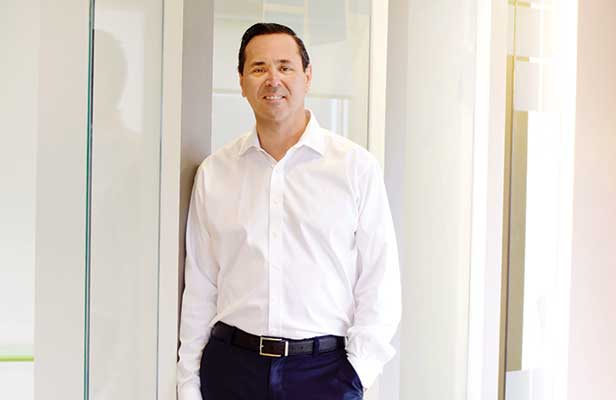May 08, 2019
Q&A with Neil Ringel, Polyconcept CEO
The new CEO at the billion-dollar global promo firm talks about his plans for the company, gives his take on the industry overall and explains how his career experiences have prepared him for his current role.
Counselor: You worked at Staples for 23 years. How do you think your time there relates to the promo market?
Neil Ringel: All of my years at Staples were spent in the business-to-business segment, starting in sales management and progressing through various leadership positions which ultimately had me as the president of North American delivery until I left at the end of September 2018. It gave me a strong background in digital commerce and marketing, plus real-time insight and access to data for our sellers so they could provide it to our customers. And while my background was primarily office supplies and services, Staples is obviously no stranger to the promotional products industry. I come with some familiarity about the industry, but I have a lot to learn.

Neil Ringel, CEO of Polyconcept
C: How did you make the move to Polyconcept?
NR: I was winding up my career at Staples and I’d started a search – although I thought I’d spend a little bit more time relaxing. No such luck. And winters in Boston where I was living then encourage you to do something; it’s cold and snowing most of the time. I began having conversations with a number of different organizations, including Polyconcept’s owner, Charlesbank, and you know the end of the story. Here I am.
C: Usually when there’s a change at the C-level of the company it signifies a change in strategy. What are your priorities for Polyconcept moving forward?
NR: My immediate focus is on listening and learning from David Nicholson, PCNA’s president, and from the rest of the team, as well as going out and visiting our operations. I’m meeting the teams that run our business at the grassroots level, observing them and asking an enormous amount of questions. I think at this point I’ve already made myself a little bit annoying to some folks as I continue to ask, ask and ask about how we do things and why we do them.
Podcast
Listen to Counselor’s Michele Bell interview Ringel and PCNA President David Nicholson.
C: Have you reached out to customers?
NR: I have. I’ve called our customers on the phone and I’m visiting some in person to get up to speed as quickly as possible. That’ll help me immeasurably as we begin to look at our strategy. Of course, our strategy already exists and it’s been successful, but I’m asking if we should make tweaks to it. I can say this: Strategically, I like the direction of this company and I’m impressed with the people here.
C: What else has struck you about Polyconcept?
NR: I’m learning our place in the market. No doubt, one of the things that attracted me to join Polyconcept was its reputation in the industry. When I got here I saw passionate people doing really good work around a customer-centric mindset. I’d hoped to find that. It’s something I’m not surprised about, but it’s always nice to see it reaffirmed.
C: What’s your view so far of PF Concept, Polyconcept’s European arm?
NR: I’ve been talking regularly with Ralf Oster who runs our operations there. I’m scheduled to visit our facility in Poland to get a chance to see all the good things they’re doing. They’re coming off of a couple of great years. I also have a trip planned to China. I’ve prioritized North America, but I’m really looking forward to going abroad.
“I think if Amazon is the benchmark for how people shop and buy today, our aspirations should be to move as close to a single click or a push notification as possible.” — Neil Ringel
C: From your experience, is the promo industry on par with other markets in terms of technology or is it lagging behind?
NR: Well, I’d point to other industries, starting with Amazon and the simplicity with which they allow their customers to shop. I recognize that’s a consumer buying a product, not a distributor having to customize something, but the principals are the same. We need to reduce friction from the process and cut down the need for a phone call or a follow-up. We should do all we can to streamline our account executive’s communications with customers. That’s on us to improve the process digitally, to have a mobile strategy, to have a web strategy and to have systems internally to allow our people to be more responsive. I think if Amazon is the benchmark for how people shop and buy today, our aspirations should be to move as close to a single click or a push notification as possible instead of a customer having to call for something.
